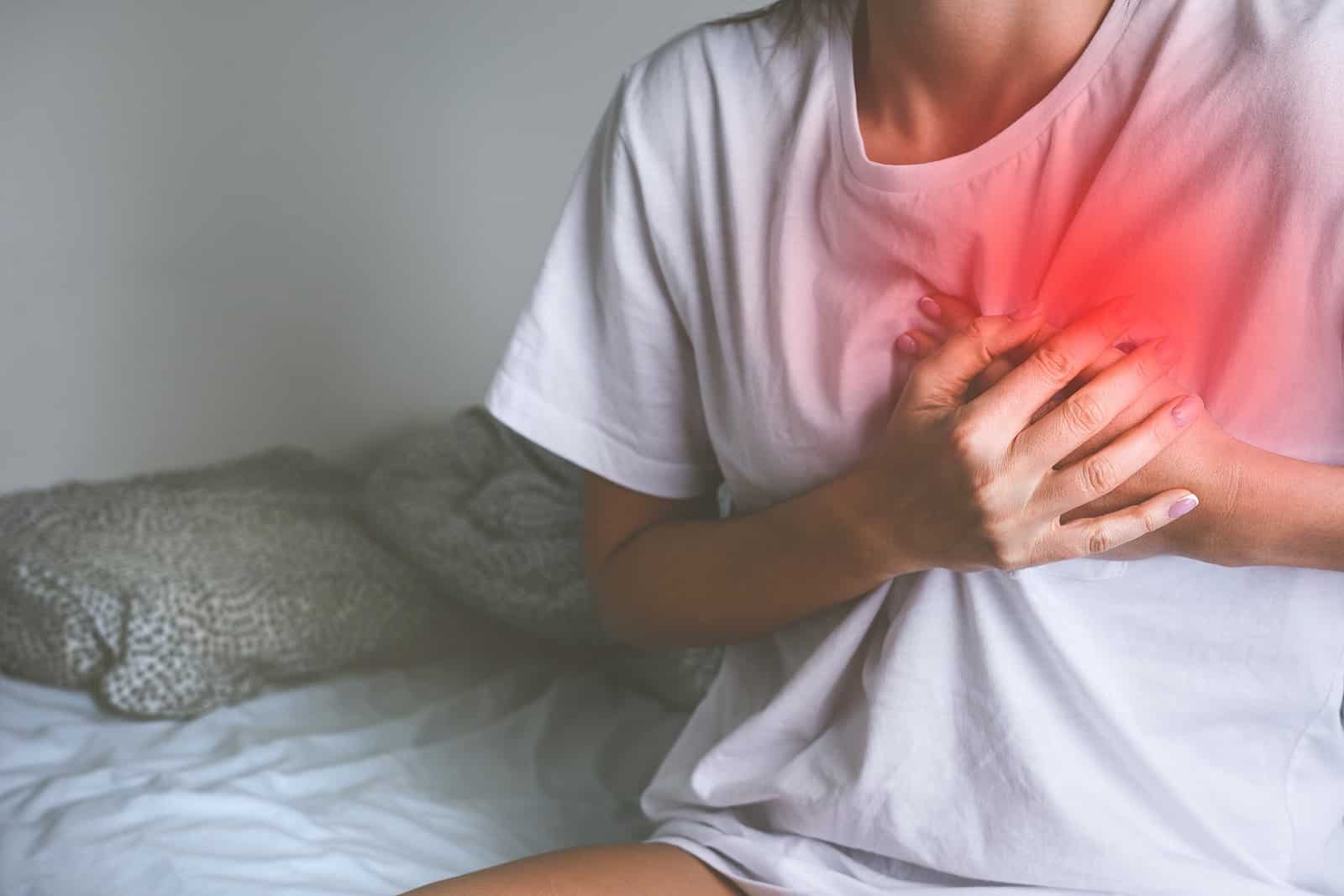
Chest pain can be a frightening experience. Many people wonder when chest pain is an emergency and requires immediate medical attention. The answer to this question can vary, as chest pain has many different causes. In most cases, chest pain is not a life-threatening emergency. However, it is essential to know when chest pain requires emergency care.
Chest pain might extend to your neck, mouth, or down your arms, among other places. Chest pain can be either subtle or severe. You might have stiffness, an ache, or a pressing or squeezing sensation in your chest. Chest pain may linger for a short while or several hours.
When your heart doesn’t receive enough oxygen-rich blood, it can experience angina, one type of chest pain. Angina is a sign of a cardiac condition. It frequently becomes worse with effort and gets better when you’re at rest. With angina, it might feel like your chest is being squeezed or under pressure; discomfort in your neck, back, jaw, shoulders, and arms; and a feeling like you have indigestion. (Cleveland Clinic)
Chest Pain and Heart Attack
The type of first aid for chest discomfort depends on the cause. From small issues like heartburn or mental stress to significant medical concerns like a heart attack or a blood clot in the lungs (pulmonary embolism), chest pain can have a variety of causes. If you’ve never experienced chest pain before, it can be scary until you have it diagnosed.
Chest pain from a heart attack typically lasts longer than 15 minutes. There can be many levels of pain. Heart attacks can come on unexpectedly, but many patients experience warning symptoms hours or days beforehand. Any one or all of the following may occur in someone undergoing a heart attack:
- Chest pressure or tightness
- Aching or squeezing feeling in the middle of the chest, spreads to the shoulder, arm, back, neck, jaw, teeth, and, on rare occasions, the upper abdomen
- Stomach pain
- Heartburn
- Indigestion or nausea
- Breathing difficulty
- Dizziness
- Light-headedness
- Fainting
- Sweating
Chest pain is not often severe or even the most obvious symptom in women. Women typically experience more nebulous symptoms, such as nausea or jaw or back pain, which may be more severe than the discomfort in the chest. (Mayo Clinic)
What to expect at the emergency room
To begin with, contact 911 to be taken in an ambulance rather than by car. Contrary to popular belief, there are more reasons to transport by ambulance besides speed. The ambulance is equipped to restart your heart in the event that you experience cardiac arrest. Cardiac arrest, which is brought on by an electrical problem that prevents the heart from pumping, is fatal if left untreated. The dispatcher will send paramedics who are trained to do an electrocardiogram (ECG).
Next, you’ll have an evaluation by a physician or other clinician, who will inquire about your medical background and specifics regarding the site, timing, and severity of your symptoms. A blood test for troponin, a protein that increases in response to cardiac muscle damage, will also be performed. This blood test is quite accurate. Doctors will obtain a follow-up troponin measurement, doctors may ask patients to stay for several hours. (Harvard Health)
A chest x-ray to look for alternate reasons for chest discomfort, such as pneumonia or heart failure, is another test. In addition to performing several ECGs over time, your doctor may offer you a trial dose of medication to determine if it helps your symptoms. The doctor may wish to perform an exercise stress test to assess your risk of having a heart attack in the future if several troponin tests are normal.
Chest pain can be a frightening experience, but in most cases, it is not a life-threatening emergency. However, it is important to know when chest pain requires urgent care. If you are experiencing chest pain and are unsure whether or not it is an emergency, we recommend seeking medical attention. Better safe than sorry! If you think you may be having a heart attack, call 911 immediately.
Works Cited
“Chest Pain: Causes and What It Feels Like.” Cleveland Clinic, my.clevelandclinic.org/health/symptoms/21209-chest-pain#:~:text=Call%20911%20or%20have%20someone,sign%20of%20a%20heart%20attack.
“Chest Pain: First Aid.” Mayo Clinic, Mayo Foundation for Medical Education and Research, 16 Feb. 2022, www.mayoclinic.org/first-aid/first-aid-chest-pain/basics/art-20056705.
“When Chest Pain Strikes: What to Expect at the Emergency Room.” Harvard Health, www.health.harvard.edu/pain/when-chest-pain-strikes-what-to-expect-at-the-emergency-room.
